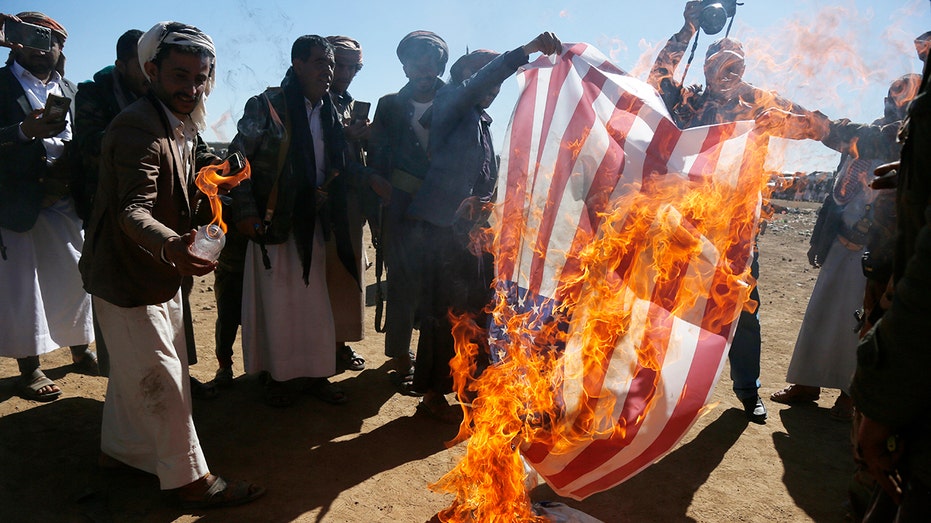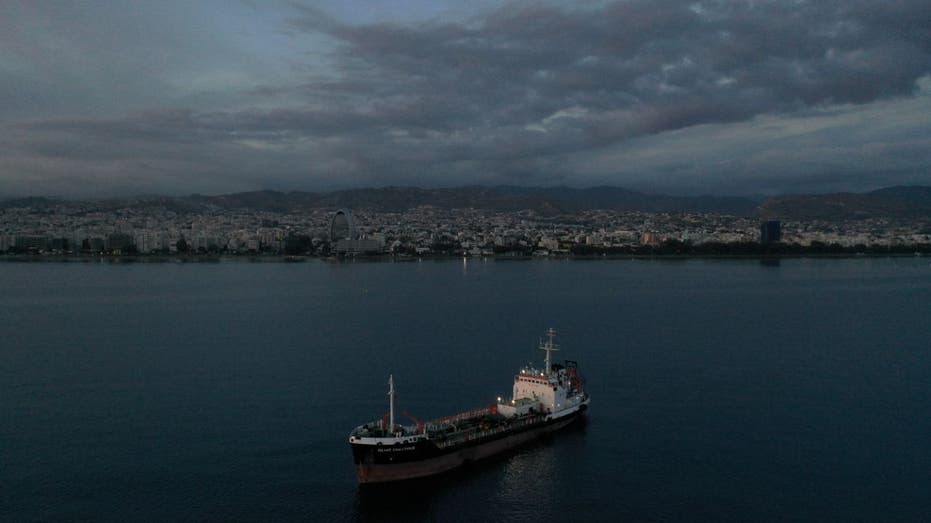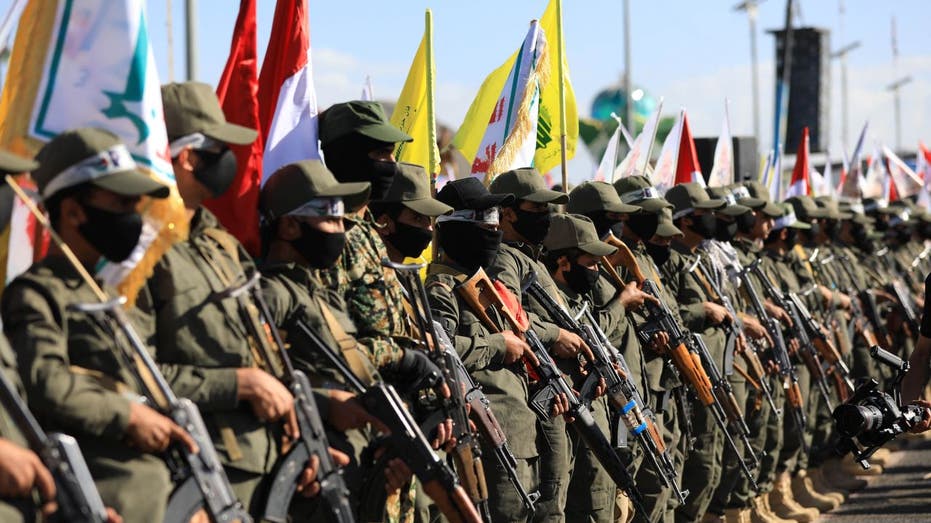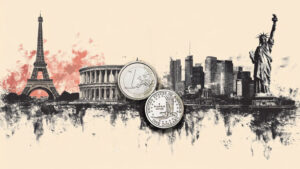EXCLUSIVE: The Iraqi state-owned bank Rafidain faces accusations that it processed payments for the U.S.-designated Yemen-based Houthi terrorist movement at its branch in Yemen’s capital city, Sanna.
FOX Business obtained exclusive information from an Iraqi official about an April 29 meeting between Dr. Michael Faulkender, a deputy secretary of the U.S. Treasury, and Iraq’s foreign minister, Fuad Hussein, who also serves as deputy prime minister. Iraq’s ambassador to the U.S., Nazar Al Khirullah, was also at the meeting.
According to minutes of the April 29 meeting, which was held in Washington at the U.S. Treasury Department, Treasury officials warned Hussein that the Iraqi state-controlled bank Rafidain needs to stop conducting business with the Iranian regime-backed Houthi organization. The U.S. also asked that the Rafidain branch relocate to the Yemen city of Aden, where the internationally recognized government of Yemen resides. The Iranian-backed proxy Houthi movement has plunged Yemen into a civil war and caused one of this century’s worst humanitarian crises.
According to the minutes, Hussein said, “The Iraqi government deals with the internationally recognized Yemeni government, which maintains an embassy in Iraq. He emphasized that there is no possibility of the Houthis accessing the Iraqi financial system, and pledged to personally verify this matter.”
US SANCTIONS MONEY LAUNDERING NETWORK AIDING IRAN AS REGIME FACES NUCLEAR REPRIMAND AT IAEA
The Houthi terrorists have disrupted commercial navigation in the Red Sea via their missile attacks on vessels. The financing of the Houthi movement has grave implications for international financial markets and shipping companies.
The U.S. military and the Israel Defense Forces have launched intense air strikes against Houthi installations in Yemen. The official slogan of the Houthi movement (Ansar Allah) reads, “Allah is Greater. Death to America. Death to Israel. Curse on the Jews. Victory to Islam.”
A U.S. Treasury spokesperson told FOX Business, “While Treasury does not comment on specific allegations, we take any alleged sanctions violations extremely seriously.”
A U.S. State Department spokesperson told FOX Business, “We do not comment on private diplomatic discussions. That said, no country should be processing payments to the Houthis. Several binding U.N. Security Council resolutions require member states to counter terrorism, including restricting financial and other support to terrorist organizations.”
Dr. Sadeq Ali Hasan, a spokesman for Iraq’s embassy in Washington, D.C., sent a statement to FOX Business that said, “The allegations claiming that the Bank processes payments to the Houthis are categorically false. There are no correspondent banking relations with financial institutions in Yemen, and due to the prevailing political, security, and logistical conditions, it is operationally impossible to conduct cash or digital transactions in or out of the Yemeni financial sector.”
According to the embassy statement, “The Sana’a Branch of Rafidain Bank has been fully non-operational since 2017. Following directives issued by the Bank’s General Administration, and in coordination with the Central Bank of Iraq, all financial activities in Yemen were permanently suspended.”
CHINA, INDIA FUEL RUSSIA WAR MACHINE BY IGNORING INTERNATIONAL SANCTIONS: REPORT

The statement continued, “The branch does not maintain liquidity, has no access to SWIFT [Society for Worldwide Interbank Financial Telecommunication], and lacks functional infrastructure. It has not processed any domestic or international payments – particularly not to the Houthi group – since its closure.”
When asked about the Iran-backed terrorist Popular Mobilization Forces (PMF) in Iraq, the Iraqi embassy said, “We confirm that Rafidain Bank no longer holds any PMF-related accounts. All such accounts and salary allocations have been officially transferred to Al-Nahrain Islamic Bank under the supervision of relevant Iraqi authorities. The Sana’a Branch, specifically, has no affiliation or activity involving the PMF.”
Michael Knights, a senior fellow at the Washington Institute, who specializes in the military and security affairs of Iraq, told FOX Business, “Since February 2025 we have seen the U.S. Congress calling for the sanctioning of Rafidain Bank on the exact issue of facilitating large-scale transfers of money to Iran and its proxies. That puts Rafidain in the danger zone as an Iraqi bank that multiple U.S. congressional representatives know the name of.” Congress has not imposed sanctions on Rafidain.

When asked about the Iraqi government’s statement, the Iraqi source, who is familiar with the April meeting, told FOX Business: “Rafidain is Iraq’s most opaque bank. It’s never been externally audited. The U.S. Treasury should act. It already requires all state banks in Iraq to conduct annual external audits, just as non-state banks are required. Rafidain must be held to the same standard. Audit it and publish the results.”
The Iraqi official added, “Rafidain pays for PMF projects and issues unsecured loans to militia fighters. If it refuses transparency, and clear audit requirements, the U.S. must revoke its dollar access. No bank is too big to sanction. That’s the whole point – to deter abuse. Rafidain has gotten away with it for too long. It’s time for the new leadership at Treasury to do what Biden’s State Department wouldn’t.”
Iraq’s financial system has been plagued by corruption and illegal oil smuggling that have aided Iran’s regime, according to reports in Reuters and the Wall Street Journal. According to the WSJ, the U.S. outlawed 14 Iraqi banks because the financial institutions were aiding Iran and additional sanctioned nations in the Middle East.

In May, Fox News Digital reported that House Republicans had urged Secretary of State Marco Rubio to punish Iraq with sanctions for its “complete subjugation” by Iran as part of the U.S.’s “maximum pressure” policy toward Tehran.
Rafidain, which had been previously blacklisted by the U.S government to punish Iraq’s former anti-American dictator Saddam Hussein, did not respond to a FOX Business press query. The United Nations imposed sanctions on Rafidain after the first Gulf War in 1991 because of concerns that Hussein could use it to receive money to buy weapons. The United Nations Security Council lifted sanctions on Rafidain in 2020.
The U.S. government lifted its restrictions on Rafidain after its occupation of Iraq in the early 2000s.
Read the full article here














